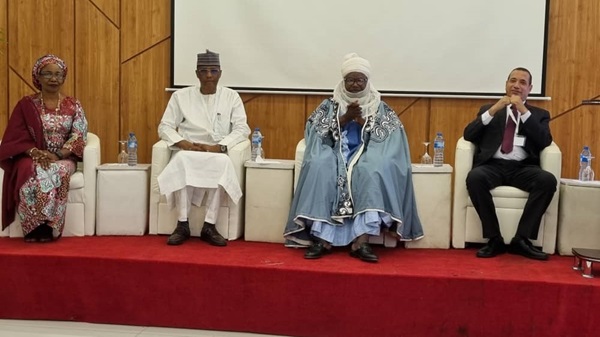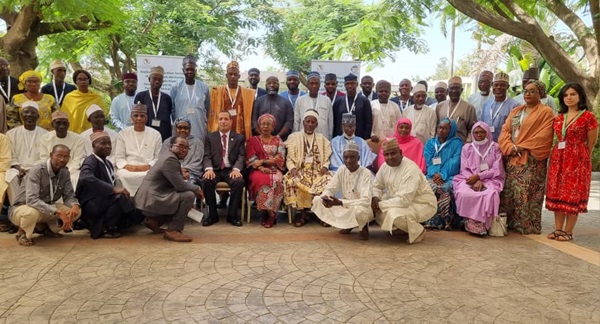
Cattle rearing has been touted as one of the major keys to Nigeria’s economic growth and food safety, a pathway to economic prosperity, offering opportunities in breeding, processing, and marketing livestock products.
This statement was made by the Emir of Nasarawa Emirate, His Royal Majesty, Alhaji Ibrahim Jibril at the first African Pastoral Markets Development (APMD) platform event in Abuja, themed “Validation of the Pastoral Livestock Market Situation Analysis and Stakeholders’ Engagement for Developing Priority Interventions Implementation Plan under the APMD Project.” Jibril underlined the importance of integrating cultural considerations into livestock policies.
“Many see cattle rearing as simply a business, but for many Nigerians, it is a way of life,” he noted. Jibril warned against policy approaches that fail to respect the cultural nuances of the rearing communities, stressing that such missteps often lead to the failure of well-intentioned initiatives.
He highlighted the need for a return to healthier, more efficient practices, such as processing and transporting beef instead of live animals. This, he explained, would reduce animal stress, enhance food safety and minimise the risks of disease transmission.
Jibril recalled successful policies from Nigeria’s First Republic, particularly Bauchi State’s establishment of a meat factory that utilised railway lines for efficient meat processing and distribution. “Reviving these practices could address contemporary challenges in the livestock sector,” he suggested.
The Emir also showcased his innovative work in methane gas conversion from cattle waste, which simultaneously produces organic manure, offering a sustainable approach to livestock management.

The director of the African Union Inter-African Bureau for Animal Resources (AU-IBAR), Dr. Human Salih, represented by the project coordinator, Prof. Ahmed Elbeltagy echoed these sentiments. He described the APMD platform as essential for tackling barriers such as climate change, limited market access, and policy deficiencies. “Fostering collaboration and innovation is key to unlocking sustainable growth in Africa’s pastoral sector,” Elbeltagy said.
The workshop emphasised three objectives: validating the pastoral livestock marketing situation, determining budgetary priorities for intervention implementation and enhancing stakeholder engagement.
Similarly, director of animal husbandry services at the Federal Ministry of Livestock Development, Dr. Winnie Lai-Solarin noted that the workshop aims to modernise Nigeria’s livestock industry. “Our goal is to create an enabling environment for trading animals, offering suitable ranching options and sustainable feed solutions,” she remarked.
Community leader Ardo Hassan Jibo of Taraba State expressed optimism about the outcomes of the initiative. He stated, “This workshop provides strategies to bridge gaps in infrastructure, maximise profits and enhance income for pastoralists. It will also create jobs, improve livestock production, and reduce herder-farmer conflicts.”
President of Reuise Fulbe Global Rights and Development Initiatives, Halima Usman Yoman highlighted the initiative’s potential to empower women and youth, modernising their livestock production and providing them with sustainable economic opportunities.
With collaborative efforts and stakeholder commitment, Nigeria’s livestock sector can advance, boosting the economy, reducing conflicts, and enhancing food security for millions. The event underscored the transformative potential of modernised pastoral practices in securing Nigeria’s future.

